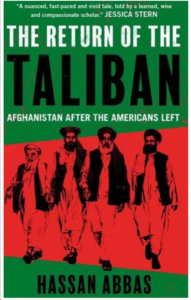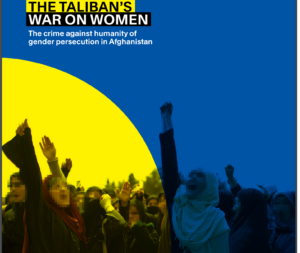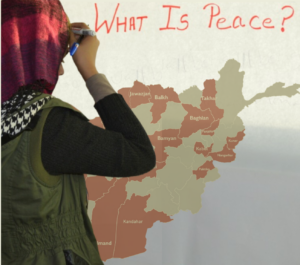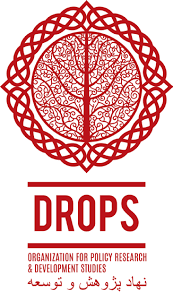 Eighty-nine schoolgirls and their teachers were hospitalized (NYT) with respiratory and neurological symptoms in a suspected incident of poisoning at two girls’ schools over the weekend.
Eighty-nine schoolgirls and their teachers were hospitalized (NYT) with respiratory and neurological symptoms in a suspected incident of poisoning at two girls’ schools over the weekend.
There is a fiery debate in Washington on whether it is wise or even moral to engage with the Taliban, analyst Ria Ellendula observes. Proponents of engagement cite geopolitical strategy as a reason to continue high-level engagement. This geopolitical strategy considers three important factors: (1) national security, (2) competition with Russia and China, and (3) counterterrorism efforts. Specifically, failure to engage may provoke greater chaos, threatening civilian safety and broader security, she writes for FPRI:
According to the CNAS Report on Supporting Civil Society and Human Rights in Taliban-Controlled Afghanistan, “the United States will have the greatest chance of impacting human rights inside Afghanistan if it works closely with European players committed to protecting Afghan women and preserving civil society gains.” The European Union’s proximity to terrorist, drug, and migrant flows affected by conditions in Afghanistan, alongside the European Union’s pre-established human rights and gender equality objectives, could set the United States up to greatly influence the discourse on Afghanistan’s political climate.
Nearly two years after the Taliban’s return to power in Kabul, the UN refers to the regime only as “the de facto authorities,” to avoid any hint of formal recognition of the Islamic Emirate of Afghanistan, as the Taliban call their government, notes Steve Coll. By any name, the Taliban today control Afghanistan’s territory, as well as federal ministries and local administrations. They also preside over a nation in severe crisis. Food insecurity haunts at least half of the population; a country shattered by more than four decades of war again faces the shadow of famine, he writes in a NYRB review of The Return of the Taliban: Afghanistan After the Americans Left by Hassan Abbas:
A succession of edicts by Taliban clerics has disrupted the delivery of vital international aid. The Taliban have forbidden girls and women from attending school beyond sixth grade and from working for NGOs, prompting dozens of international aid groups to suspend or reduce operations.
In April the Taliban extended their work ban to the four hundred Afghan women employed by the UN, a decision that threatens about $3 billion in annual food, medical, and other humanitarian assistance. (The US and other wealthy donor nations funnel their Afghan aid mainly through UN agencies, to prevent the Taliban from controlling the funds.)
 The Taliban have created an atmosphere of fear enforced through targeted harassment, beatings, killings, and disappearances, according to the latest report from BISHNAW-WAWRA, an initiative of the Kabul-based Organization for Policy Research and Development Studies (DROPS). BISHNAW means listen in Dari and WAWRA in Pashto, and the group aims to capture the voices of women in real-time to ensure that ‘listening’ to Afghan women is not a one-off event but an integral part of all discussions on peace, security and development in Afghanistan.
The Taliban have created an atmosphere of fear enforced through targeted harassment, beatings, killings, and disappearances, according to the latest report from BISHNAW-WAWRA, an initiative of the Kabul-based Organization for Policy Research and Development Studies (DROPS). BISHNAW means listen in Dari and WAWRA in Pashto, and the group aims to capture the voices of women in real-time to ensure that ‘listening’ to Afghan women is not a one-off event but an integral part of all discussions on peace, security and development in Afghanistan.
The report, Bringing Afghan Women’s Voices to the Foreground in Peace and Conflict, by Dr Althea-Maria Rivas & Mariam Safi, draws on the voices of thousands of women across 17 Afghan provinces who replied to monthly surveys or took part in focus groups run by BISHNAW’s local pollsters.
 The Biden administration and European governments have many quarrels with the Taliban, but the regime’s policies denying education and work to women lie at the heart of the current emergency over international aid, Coll writes:
The Biden administration and European governments have many quarrels with the Taliban, but the regime’s policies denying education and work to women lie at the heart of the current emergency over international aid, Coll writes:
“This extreme situation of institutionalised gender-based discrimination in Afghanistan is unparalleled anywhere in the world,” Richard Bennett, the UN’s special rapporteur for human rights in Afghanistan, and Dorothy Estrada-Tanck, chair of a UN working group on gender discrimination, reported in May, after an eight-day visit to the country. The Taliban’s practices amounted to an “apparent…crime against humanity,” they concluded.








